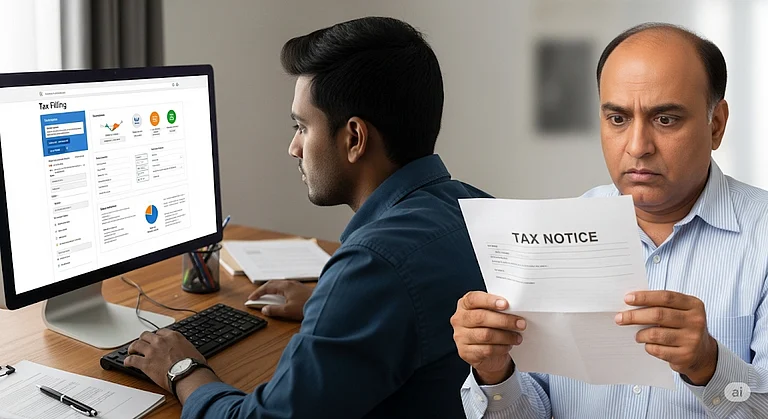The February draft of the new Income Tax Bill introduced a condition that for vacancy relief to apply, the property should have been “let in the normal course.” On paper, this might sound harmless, however, in practice, tax professionals quickly saw the problem. Here's what would change in the revised Bill.
Fair Taxation Of Vacant Residential Properties: What Must Change In Income Tax Bill 2025
Under the current Income Tax Act, 1961, if a property remains vacant for all or part of the year, owners can declare the lower of the actual rent received or the notional rent (what the property could reasonably fetch if rented). What changed in the Income Tax Bill 2025?
When the government pulled back the Income Tax Bill, 2025, from the Lok Sabha last week, most attention went to the broader drafting errors and alignment issues flagged by the Select Committee. But inside the list of changes suggested by the Parliamentary panel is something property owners, especially those with vacant homes, will want to track closely.
What Has Changed In The New Income Tax Bill?
The original draft had reworked the way the “annual value” of a vacant house is calculated for tax purposes. This figure matters because it decides how much tax is payable, even if a property is not generating any rent.
Under the current Income Tax Act, 1961, if a property remains vacant for all or part of the year, owners can declare the lower of the actual rent received or the notional rent (what the property could reasonably fetch if rented). This allows some breathing space when there is no income coming in from the property.
The February draft of the new Bill, however, introduced a condition that for vacancy relief to apply, the property should have been “let in the normal course.” On paper, it might sound harmless. In practice, tax professionals quickly saw the problem. The phrase is vague, and different tax officers could read it differently. It could easily have led to situations where owners were denied vacancy relief simply because they could not prove their property was let “in the normal course,” whatever that might mean.
CA Ashish Niraj, Partner at A S N & Company Chartered Accountants, says this was one of the more problematic insertions. “Many properties remain vacant for genuine reasons, such as new listings, tenant turnover, or simply because the owner has not found the right tenant yet. The ‘normal course’ wording was too judgmental and could have been interpreted inconsistently, leading to unnecessary disputes,” he explains.
Under the existing law, the calculation is far clearer: fair rent and municipal rent are compared, the higher figure is taken, and then compared again with standard rent. The lower of these becomes the expected rent for tax purposes. This structure has kept assessments relatively straightforward. The draft Bill’s new condition risked upsetting that clarity.
What has the Select Committee suggested?
The Select Committee has recommended removing the phrase entirely and restoring the current system’s comparative framework which means looking at both actual and notional rent, and taxing the lower figure. If accepted, it means property owners will not be taxed on hypothetical income when their houses are sitting empty.
The revised Bill is expected to be introduced in the Parliament today (11 August 2025). For anyone holding on to a residential property that is not always occupied, this could be the difference between a reasonable tax bill and one based on rent that never actually came in.


